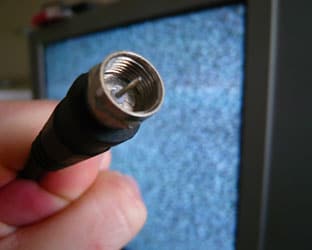It is inevitable that despite every best effort to educate the public, many consumers will fall through the cracks and fail to take steps necessary to join the new DTV reality. The National Association of Broadcasters says it’ll be ready with a consumer hot line and additional consumer instructional material. Based on the Wilmington NBC DTV test and various local analog turn-off experiments, NAB estimates the DTV transition will generate 2M consumer phone calls within five days of the 2/17/09 analog turn-off date, with roughly half coming by the 18th. The NAB also hopes to take advantage of the analog night light recently approved by Congress, using it to run an NAB-produced video that will address the most common consumer problems.
“Establishing a plan to respond to consumer questions about the DTV transition is another example of the broadcast industry’s continuing leadership and unwavering commitment to help Americans prepare for the historic transition to digital television,” said NAB President and CEO David K. Rehr. “Utilizing the airwaves, numerous grassroots and marketing initiatives and now a nationwide hotline, NAB and broadcasters are doing everything possible to ensure a smooth transition for all viewers across the nation.”
The NAB’s DTV hot line is intended to supplement other parallel efforts coming from local and state broadcast groups, MVPDs and the FCC. The video will address common issues such as “…converter box installation, rescanning, antenna positioning and general DTV transition questions, among other issues,” and will direct consumers whose question hasn’t been answered to the various hotlines. The broadcaster organization says president-elect Barack Obama has been apprised of the NAB’s plans.
RBR/TVBR observation: This will be a key element to a successful transition, and the NAB is to be commended for seeing it through to the endgame, particularly since the Congress that set the DTV transition in motion seems to be AWOL when it comes to actually putting up the cash to make sure it works.




